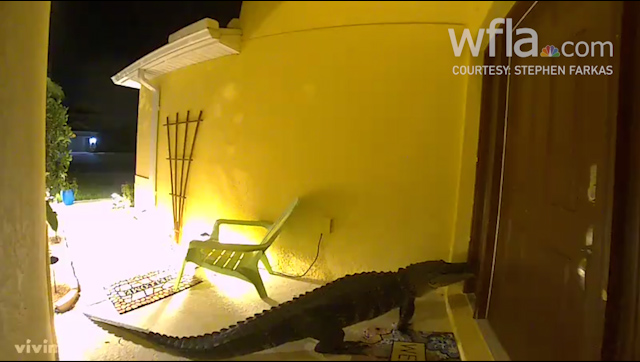TAMPA, Fla. (WFLA) – Florida Gov. Ron DeSantis was in Tampa Thursday to sign a law that would create a new education office to generate and revise different state provisions for workforce services and better prepare Florida’s residents for their careers.
HB 1507 would take effect on July 1 and will create the Office of Reimagining Education and Career Help, or REACH as a part of the Executive Office of the Governor. The office would have the responsibility of coordinating and aligning Florida’s workforce development system across the state. The office would be required to take several steps to bolster career access and opportunities to students after graduation.
The language of the law says it is aimed at addressing “the evolving needs of Florida’s economy by increasing the level of collaboration and cooperation among state businesses and education communities” while making training for jobs better and more equitable.
The first of the steps REACH will be required to take will be to create what the state’s calling a “no-wrong-door” entry strategy, where Florida residents would have access to services from multiple workforce partners with common intake forms and a centralized case management system.
An online portal with opportunities for available state, federal, and localized career services and evaluation tools for short-term employability and long-term self-sufficiency would also be created by REACH. Additionally, the portal would provide wider access to education and training options, real-time labor market information, career planning and services tools ,and support for workforce training and education “linked to middle- and high-wage in-demand jobs.”
The Department of Economic Opportunity and the Department of Children and Families would also have to evaluate the impact of workforce services for participants that receive benefits and welfare transition programs. The evaluations would include performance reports on the participants’ earnings.
REACH will also make the Labor Market Estimating Conference responsible for determining the state’s real0time supply and demand in the labor market.
Local workforce development boards will be assigned a public letter grade based on improvement of participants’ long-term self-sufficiency, and the return on investment for taking part in the program.
The Talent Development Council will also be charged with coordinating Florida’s effort to meet state healthcare workforce needs by conducting a gap analysis and providing trend information on nursing programs across Florida.
The DEO will also have to establish WIOA eligible training provider criteria for participant outcomes, and make the CareerSource state board appoint a Credentials Review Committee to identify degree and non-degree credentials of value, develop a Master Credentials List for performance funding, and establish policies for funding with makes outcomes a priority and leverages resources to support vulnerable populations.
An Open Door Workforce Grant Program will also be created to provide grants for school districts and Florida College System institutions to cover up to two-thirds of the costs of short-term, high-demand programs. A Money-Back Guarantee Program will also be developed which requires each school district and Florida College System school to refund tuition to students who do not find jobs within six months of finishing select programs.
A new workforce performance funding model for school districts and FCS workforce programs, requiring one-third of performance funding to be based on rewarding student job placement and two-thirds based on student earnings, will also be created, focusing on economy mobility of underserved populations.
Students entering a public postsecondary institution in the 2022-2023 academic year, and thereafter, must be able to earn nationally recognized digital credentials for competencies in general core education core courses, specifically the ones that show career readiness.

